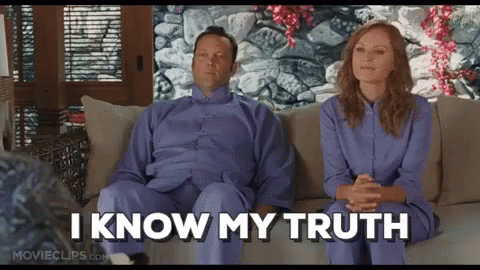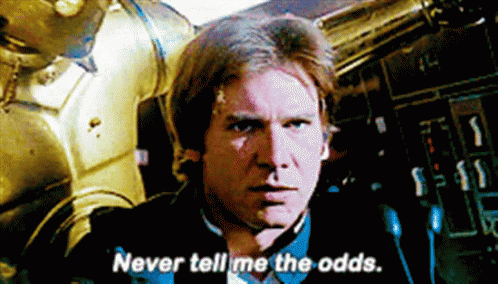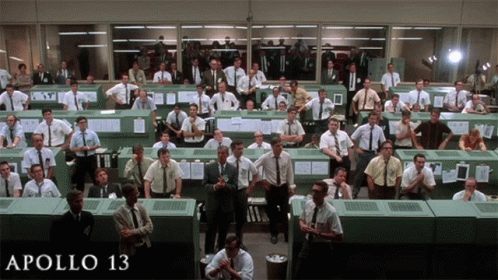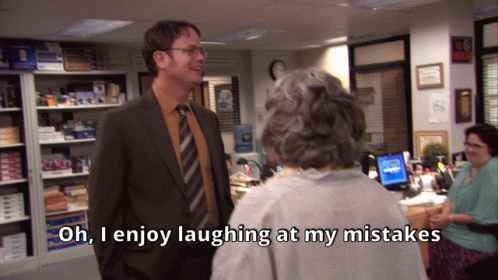Foundations of Decision-Making in Space Domain Awareness
Decision-Making and Space Domain Awareness: Decision-Loops, Organizations and Assessment.

Space Domain Awareness is a necessary component of operational decision-making in space. How are the two connected? What is the nature of their connection? In this article we briefly review Space Domain Awareness (SDA) and its relationship with knowledge production.
This is part one of a four-article series on exploring the relationship between decision-making and SDA. This article will discuss 1) the definition and purpose of SDA, 2) the role of organizations and operations centers, 3) the 'decision-loop,' and 4) a few methods to assess decision-making quality.
Onward!
Introduction to Space Domain Awareness and Knowledge Production
Much ink has been spilled in defining Space Domain Awareness (SDA). It is important to understand that SDA is defined by its purpose - not processes. The purpose of SDA is to enable timely and quality decision-making at tactical, operational, and strategic timescales.
Everyone has their favorite definition of what that means, including me.

In pursuit of these decision-making objectives, SDA includes a number of specific activities. According to the USSF, Space Domain Awareness includes awareness of:
"[M]ission related details such as (S/C) missions, intentions, system capabilities, patterns-of-life, and the status of consumables and expendables." (pg. 39, Spacepower - Doctrine for Space Forces)
and
"[Inferring] patterns, trends, and associations, especially related to human behavior and interactions [...]." (pg. 39, Spacepower - Doctrine for Space Forces)
How is this knowledge generated? How do we fuse all of the remote sensing and other data into 'actionable' SDA knowledge? There are many answers to those questions, and I've written other articles (Questions, Evidence, and Knowledge in Space Domain Awareness) about those details - they're out of scope of this article. In summary:
"Knowledge is a fundamental output of Space Domain Awareness and a necessary input to decision-making. To produce knowledge and quantify its uncertainty we must pose quality questions and use assets to collect evidence to resolve those questions." (Questions, Evidence, and Knowledge in Space Domain Awareness)
When we make decisions, we are almost always making them with incomplete knowledge. This requires that decision-makers think probabilistically.
"Thinking probabilistically about the world involves three distinct elements: 1) Understanding what these subjective probabilities actually mean [...], 2) Assigning probabilities to many things (events, beliefs, etc.) in our lives, to help us better understand the world around us and make better decisions, and 3) Updating these probabilities appropriately when relevant new information comes in." (pg. 66, Maxims on Thinking Analytically)

SDA is a continuous, never-ending task; so long as we are spacefaring and time marches forward there is SDA work to be done.
"Now the trumpet summons us again [...] to bear the burden of a long twilight struggle." (John F. Kennedy)
In this article we want to focus on the relationship between SDA and decision-making. Let's dig in to where and how SDA-informed decisions are made.
Decision Factories?
Space Operations is not a one-person show. The necessary knowledge ingestion and decision-making is too complex and asynchronous. Rather, related decision-making is made by teams, or even teams of teams.

At the United States Space Force (USSF), decision-making (often called 'Command and Control' - C2) is driven by policy, 'Commander Intent,' and 'Courses of Action' (well, at least for situations that can be anticipated).
"Space Command and Control (C2), organized as a team of teams, leverages a distributive approach to warfighter synchronization to enhance the standard centralized control structure." (pg. 42, Spacepower - Doctrine for Space Forces)
Mission command, a method used by some militaries to balance centralized and decentralized decision-making in operations, is one way to organize teams of teams.
"Military space forces fight through uncertainty in a dynamic environment by seizing the initiative through decentralized execution and the principles of Mission Command." (pg. 49, Spacepower - Doctrine for Space Forces)
More on Mission Command when we discuss decision-making methodology pros and cons in article three of this series.
What do I mean when I write 'decision factories'? I mean simply that the role of operational organizations is to ingest knowledge to produce timely and high-quality decisions. Roger Martin hit the nail on the head in his Harvard Business Review article:
"At desks and in meeting rooms, every day of their working lives, knowledge workers hammer away in decision factories. Their raw materials are data, either from their own information systems or from outside providers. They produce lots of memos and presentations full of analyses and recommendations. They engage in production processes—called meetings—that convert this work to finished goods in the form of decisions." (Roger L. Martin, Rethinking the Decision Factory
There is much to be gained by considering decision-making from the perspective of a manufacturing process.
"[H]ope is not a strategy." (Sen. McCain, pg. 250, The Kill Chain)
Ok, so space operations relies upon organizations to engage in 'knowledge work' to convert knowledge into decisions. Where do decision-making organizations fit in a closed-loop decision-making system?
The Decision Loop with SDA
I've written about Endsley's Situational Awareness model before, and how it enables decision-making loops. Whether we model these loops as autonomy, cognition, or Observe, Orient, Decide, Act (OODA - See Col. Boyd) frameworks, they all have the same fundamental components. I've reproduced a drawing of Endsley's model as a SDA decision-loop below to illustrate this concept.
There are a few main takeaways. Starting at the left side, we have 1) sensors that extract raw data about what is happening in the real world, 2) raw data refinement into information, 3) the fusion of information to create knowledge, 4) the application of knowledge to make decisions, and 5) executing decisions that have been made.
(Image of SDA & Decision-Making)
"If the game of power is inescapable, better to be an artist than a denier or a bungler." (pg. xix, 48 Laws of Power)
When 'closing the loop' in decision-making, the speed and agility of decision-making is a critical measure of success.
"We must act upon the knowledge and understanding of strategic reality and use our resources at a faster tempo or rhythm than our adversaries." (Loc. 1037, Reversing the Tao)
You may hear this concept referenced as 'getting inside the decision-loop.' High quality and timely SDA is a necessary condition of achieving this objective.
However, simply making fast decisions isn't the whole objective. We also want them to possess objective qualities.
Feedback and Decision-Making Assessment
How do we know if our SDA efforts are producing good decisions? Naturally, we need to assess our decisions and adjust as necessary to maintain and improve their quality. There are several approaches to accomplish this aim, and many ways in which things can go wrong.
What is a Decision, and How do we Make Them?
To begin, consider what a decision is and where it fits into tactical, operational, and strategic activities:
"Key Insight #1: A decision–the thought process that leads to actions, which lead in turn to outcomes–is the right 'building block' for solving many of the world’s most complex problems and for integrating humans with technology." (Location 278, Link - Decision Intelligence)"
"In the professional world, assessing the probabilities that different courses of action will lead to success, and being willing to update these probabilities, is essential to effective decision-making." (pg. 81, Maxims on Thinking Analytically)
Attention is All You Need
Yes, this is a reference to large language models (LLMs).
Seriously, though, paying attention to decision-making processes, documenting their outcomes, and looking for opportunities to improve is very important.
"If you can not measure it, you can not improve it." (Lord Kelvin)
There are several methods to assess the quality of decisions. Most examine outcomes to try and attribute what elements of the decision produced it. They try and connect the decision, action, and outcome.
For many industrial processes we use feedback loops; they allow us to iteratively improve by comparing how things are to how we wish them to be. The same is true for SDA-enabled production of decisions at decision-factories (space operations). The assessment of the outcome is directly tied to what is happening in the space domain; high quality and timely SDA are necessary to assess decisions.
"Key Insight #12: Feedback loops dominate the impact of decisions in many arenas, much more than precise values of data." (Location 825, Link - Decision Intelligence)
For decision-making, wargames often fulfill this purpose.
"The value of a wargame as a tool in defense research, as in academic research, is inextricably tied to its validity as a tool for studying decision processes." (pg. 383, Peter Perla's The Art of Wargaming)
Assessing decisions is - in the long run - more important than collecting new data. If we adjust our view of SDA to include decision assessment, our SDA-enabled decisions will improve. Even when decisions are judged to be 'good' or 'bad,' there is still value to be mined by assessing the decision.
That is, assuming there is consensus on our conception of 'good' and 'bad.' On the topic of decision-making, Socrates, Lao Tzu, and Confucius have some suggestions:
"[The universe and the Earth] are not focused on outcomes or achievements; therefore they always succeed." (Lao Tzu, pg. 7, 7. Humility, Tao Te Ching)
"The Master said, 'To make a mistake and not to correct it—now that is called making a mistake.'" (Confucius, pg. 331, The Analects 15.30)
"Not extreme perfection, but purity and clarity are the targets at which we should aim." (Lao Tzu, pg. 45, 45. Perfectionism, Tao Te Ching)
"I will never fear or avoid a possible good rather than a certain evil." (Socrates, pg. 37, Five Dialogues)
"Fool me once, shame on you; fool me twice, shame on me." (Anthony Weldon)
These pithy quotes are all well and nice. What do they mean?
"Key Insight #14: Soft factors within feedback loops are often the most influential on an organization’s success, yet are systematically ignored." (Location 844, Link - Decision Intelligence)
"Whenever you have an important decision to make, write down what you expect to happen. After a year, compare your expectation with the actual outcome." (pg. 20, The Decision Book)
Indeed. Learning from decision-making successes and errors should be integrated into regular SDA activities. Of course, we rarely have all of the knowledge and time to make decisions on our own terms.
"[...] [A]ll we can do is make the best decision with the information we have at the time we have it." (pg. 103, Maxims on Thinking Analytically)
"One should do great things as one fries small fish—simply, boldly, without fear." (pg. 60, 60. Fearless, Tao Te Ching)
"[A]ssess the best-case or worst-case consequences of a decision you are struggling to make." (pg. 17, Maxims on Thinking Analytically)
Of course, it's even better to learn from the mistakes of others. That said, the fasted way to learn is by making mistakes.

Errors of Commission and Omission
It's easy to focus on mistakes we have made. It can be helpful if we focus our decision-making feedback on both decisions that we have made and decisions we did not make. These errors of commission (errors from making decisions) are easier to identify, but what about errors of omission (errors from not making decisions)? Do we unintentionally focus on one of these at the expens of the other?
"Errors of Commission generally get weighted more heavily than Errors of Omission, a tendency sometimes referred to as Omission Bias." (pg. 110, Maxims on Thinking Analytically)
Errors of omission are... sneaky. How do you know if you should have done something when it's not clear at the time that you should make a decision? This is especially problematic when we don't search for SDA evidence to evaluate decisions we chose not to make. The aphorism 'not making a decision is a decision' captures the essence of this truth.
"One potential reason behind Omission Bias is that we often do not know about the losses that arise from Errors of Omission." (pg. 111, Maxims on Thinking Analytically)
Still, we need to make efforts. SDA and space operations decisions are often defined by things you don't do. There is a lot of waiting in SDA. There is a lot of 'not doing.' I have suspicions that Omission Bias may be endemic to the field.
"Errors of Commission should be weighted the same as Errors of Omission." (pg. 109, Maxims on Thinking Analytically)
Try not to make this mistake.
Smugness and Regret
Sometimes we make bad decisions that work out.
"[Y]ou should not take pride in poorly made decisions that work out well." (pg. 155, Maxims on Thinking Analytically)
There is often less review and analysis applied to poor decisions that turn out well. This smugness can undermine decision-making feedback loops and improvement.

Conversely, we often obsess over decisions that turn out poorly - even if they are good decisions.
"[A]s decision makers we should not regret sound decisions that lead to poor outcomes." (pg. 154, Maxims on Thinking Analytically)"
"Good decisions sometimes have poor outcomes." (pg. 92, Maxims on Thinking Analytically)
"You might feel bad for the outcome, but if the decision was wise, it does not become less wise because of an unlucky outcome." (pg. 155, Maxims on Thinking Analytically)
"[A]void regret when a good decision leads to a bad outcome." (pg. 155, Maxims on Thinking Analytically)
"To succeed, be as attentive at the end of an enterprise as at the beginning." (pg. 64, 64. Attend to the End, Tao Te Ching)

On this topic, the wisdom of the ages and sages is clear... decisions should be judged on the information available at the time. Hindsight can cloud the objective analysis of decision quality.
Summary and Conclusion
We've reviewed what SDA is and how it is the primary industrial input for decision-making in space operations. We can consider the purpose of SDA as supporting a decision-factory. SDA is a central part of the decision-making loop (e.g., OODA). Finally, our discussion on learning from our decisions and refining our decision-making processes led to a deeper understanding common decision-making traps. Errors of commission and omission as well as smugness / regret can sabotage decision-making.


